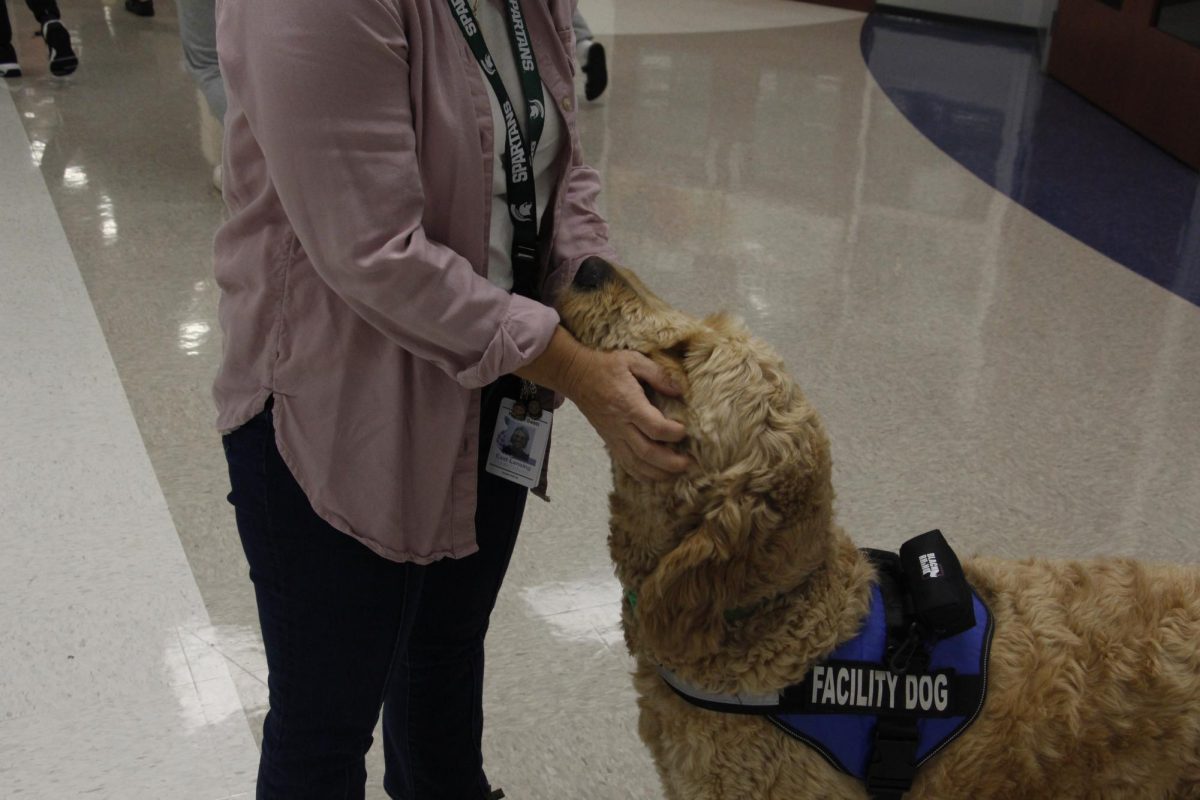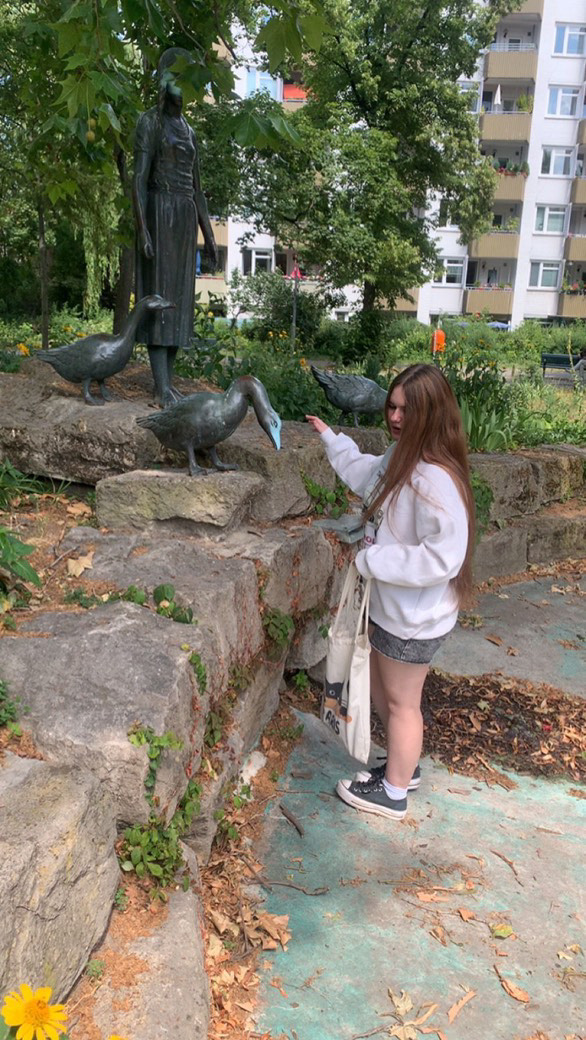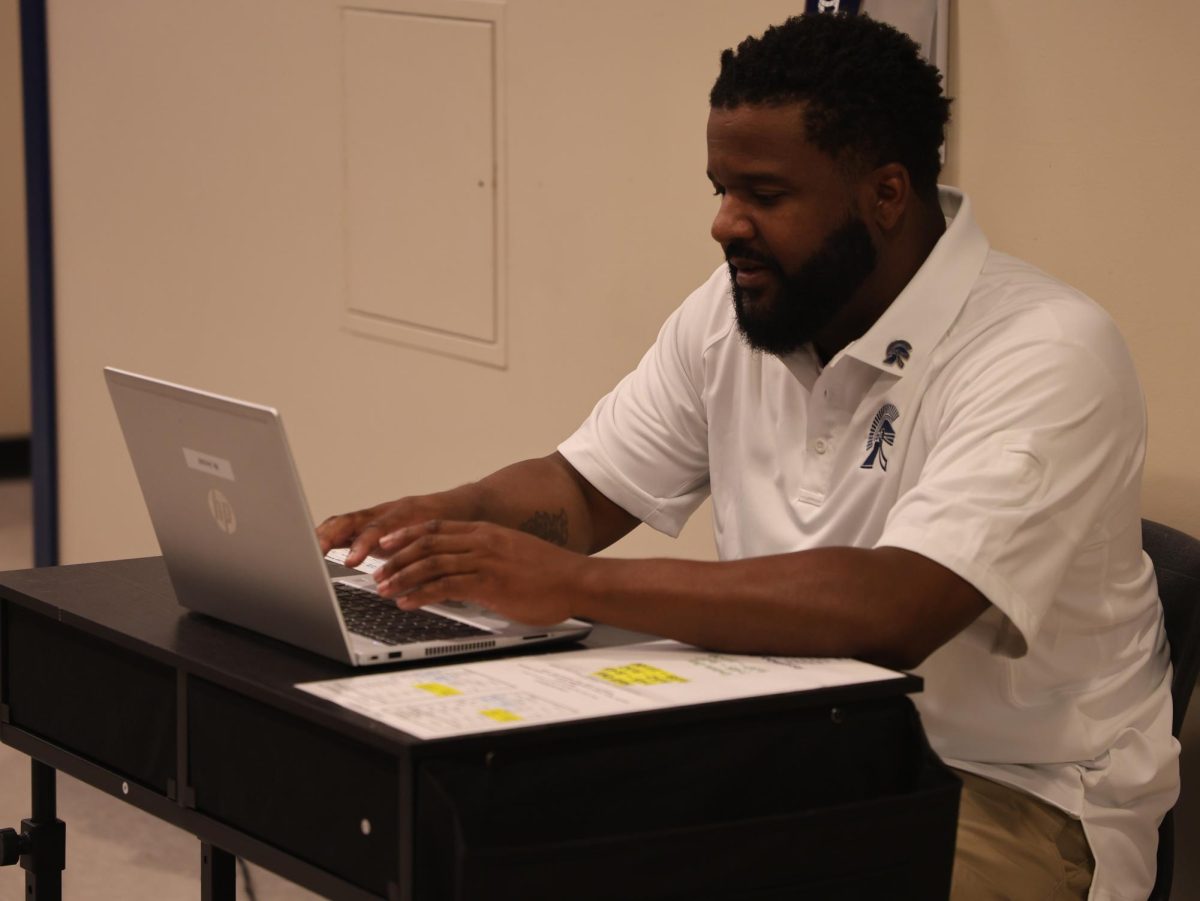Even though Kristin Sesti has been working at ELHS for less than a month, she is not new to the role of a social worker. Prior to applying here, Sesti commuted almost two hours round trip to her job in Eaton Regional Education Service Agency. She went to MSU and dreamt of having a family in East Lansing, but her dream didn’t become a reality. This made her even more excited at the idea of moving back to the exact city she fell in love with 20 years ago.
“The idea that I could be closer to home and in a community that feels like home to me sealed the deal and made me excited to interview,” Sesti said.
During her time at MSU, Sesti volunteered at a crisis hotline called ‘The Listening Ear,’ an organization that provides support to struggling people, and participates in community events. Her first paid job out of college was at a behavioral facility for children. This job led into foster care, where Sesti worked with children who were living in out-of-home care for around six years.
It was then that she realized that early childhood trauma often contributes to children’s behaviors.
“At around that time, I developed the philosophy that every behavior is a form of communication,” Sesti said. “That experience led me to go back to get my Master’s degree because I really wanted to be able to work one on one with people.”
She then continued to work as a social worker at a school in the Eaton Regional Education Service Agency. But it wasn’t the right fit for Sesti. Since she was employed by an agency outside of the district, she never felt she was a part of their community, even though she came into the building every day.
“As kind as they were, it never really felt like I was part of that,” Sesti said. “Already at East Lansing in my first week or two, lots of staff and students have reached out to welcome me and make me feel like I’m part of something here. And that feels really nice.”
Now at home in East Lansing, Sesti is able to positively impact the community that surrounds her. She is here to help students who may experience some bigger issues every once in a while, but she also is able to give students a space to just talk through everyday struggles.
“There’s a quality of life that I think I am able to bring to East Lansing with this position,” Sesti said. “I’m here for students who may have one or two big crises a year where they just need to talk to somebody and debrief and make a plan to get back through their day. But I can also serve students on a long term basis with something really close to therapy which, for many kids, is not accessible outside of these walls.”
Another tool that Sesti got to further help students at ELHS was Bear, her therapy dog.
“I knew that [having a therapy dog] would be awesome. I didn’t know it’d be this awesome,” Sesti said. “What I hope is that there can be a bridge between the humans in this school to help us identify how we’re feeling and communicate that with someone who can help.”
Most youth get mental health support within schools now compared to outside therapists. Sesti is now able to be part of a universal recognition that mental health is as important to overall health and overall success as grades, academics and physical health.
“It feels like a revelation that the community is acknowledging the importance of this work. And so I think I can reach a few students really intensely and many students globally to improve the quality of life.”










